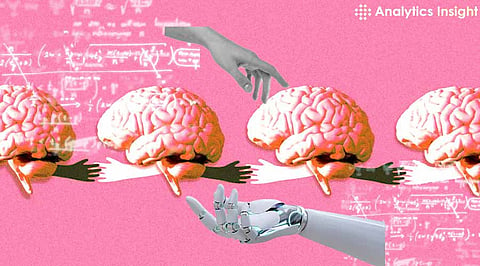

From voice assistants like Siri and Alexa to customized shopping recommendations on our preferred apps, artificial intelligence (AI) has rapidly entered our daily lives. But as AI develops, a crucial question becomes: Who governs it? Is it in the hands of a few tech behemoths, or can everyone really use AI for personal emancipation?
The solution is found halfway between. Unquestionably, Big Tech controls artificial intelligence, but people are also increasingly likely to use it for their own advantage. Let's investigate how we could strike the ideal balance in AI between the impact of Big Tech and personal empowerment.
Unquestionably, big tech giants such as Google, Amazon, Microsoft, and Meta rule the artificial intelligence scene. McKinsey research indicates that big businesses spend billions of dollars yearly on artificial intelligence development. Globally, artificial intelligence investments in 2020 reached $77.5 billion; most of this money came from big technology companies. They manage enormous volumes of data, have access to modern research teams, and generate advanced artificial intelligence technologies that influence the digital ecosystem.
From artificial intelligence-powered search engines to virtual assistants to machine learning models applied in many sectors, these firms have given us potent tools fueling our modern experiences. However, with their authority comes the worry that the advantages of artificial intelligence could get more centralized, depriving people of control over their own experiences.
Although Big Tech has most of the AI capability, there is good news – people and smaller businesses are not excluded. The democratization of artificial intelligence lets people apply technology in ways that advance their personal or professional lives.
For everyone with an internet connection, platforms like OpenAI's ChatGPT and AI-based design tools like Canva provide access to AI capacities. You don't need a PhD in artificial intelligence to maximize any of the tools like content creation, graphic design, or automated easy task completion.
Education is one of the most crucial elements, guaranteeing that artificial intelligence benefits all. Knowing how artificial intelligence operates and how to use it becomes crucial as it gets more rooted in daily life. Now that colleges and internet resources are providing AI courses for non-experts, learning the foundations of artificial intelligence is simpler than ever, regardless of background.
Apart from traditional schooling, websites like YouTube and LinkedIn Learning offer free or low-cost training enabling individuals to grasp and interact with artificial intelligence. This creates fresh chances for individuals to acquire abilities earlier thought too sophisticated or specialized.
Ultimately, the direction of artificial intelligence does not have to go solely toward Big Tech. It can also center on personal empowerment. Accessible AI tools, more knowledge, and the need for fair laws let people profit from artificial intelligence in ways that fit them.
AI may be a tool of innovation in the hands of tech businesses and a source of empowerment for common people in the proper balance. Staying informed, using the tools at hand, and supporting fair rules will help us to make sure that artificial intelligence is a force for good, benefiting everyone, not only a few strong players.
AI is here to stay, but whether Big Tech keeps control over it or lets everyone use it depends on us.
